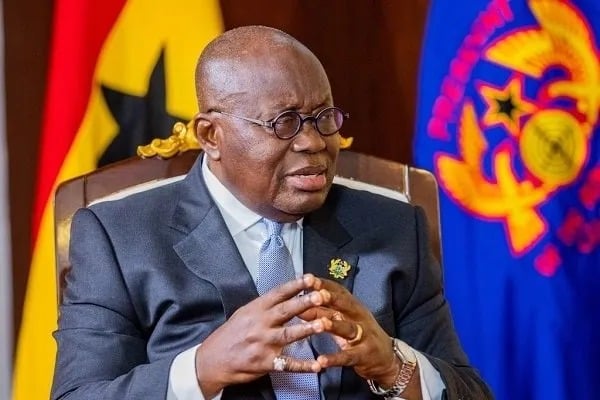President Nana Addo Dankwa Akufo-Addo has made a strong assertion that he is not responsible for the recent arrest and detention of over 50 anti-galamsey protesters in Ghana. These individuals participated in a demonstration at the Democracy Hub in September, and their arrests have triggered further protests by groups like Concerned Citizens against Galamsey, who advocate for the release of those in remand. As public discontent grows and calls for the protesters’ freedom intensify, the President has faced significant backlash and criticism from various sectors of society.
Addressing these allegations, President Akufo-Addo emphasized that the judiciary in Ghana operates independently of the executive branch. He pointed out that the courts have been functioning as autonomous institutions throughout Ghana’s Fourth Republic, acting impartially in response to cases brought before them. He firmly stated, “I am not responsible for jailing people in Ghana,” reinforcing his stance that the judiciary is the appropriate body to adjudicate matters of law and order, not the executive authority. This delineation of powers aims to reassure the public of the separation between governmental branches, which is a cornerstone of democratic governance.
The President further highlighted that the arrests were a consequence of the protesters’ actions rather than the protests themselves. He asserted that it is not the act of protesting that leads to legal repercussions but rather the conduct displayed during those protests that can create issues with law enforcement. President Akufo-Addo pointed out that many individuals tend to misinterpret the nature of protests, suggesting that they often overlook the behavior exhibited by some participants that invites police intervention. By framing it this way, he attempts to clarify the circumstances surrounding the arrests and to shift some accountability back onto the protesters.
Moreover, President Akufo-Addo quite poignantly remarked on his own history as a demonstrator, indicating that his political career was born out of protests. This personal connection to the act of protesting reinforces his statement that he does not oppose the idea of protests. Instead, he seems to underscore that expressing dissent is a vital part of democracy, provided it’s done within the confines of the law. His comments resonate with those who advocate for the right to protest freely and signify an acknowledgment of the legitimacy of public demonstration as a democratic right, albeit under responsible behavior.
The backdrop against which these events unfurl deals significantly with ongoing concerns over illegal mining, commonly known as galamsey, which has devastating effects on the environment and communities in Ghana. The protests in question were fueled by a sense of urgency regarding the negative impact of galamsey and reflected widespread frustration over governmental inaction. As the issue persists, the protests express a collective outcry for accountability and effective measures to tackle the environmental and social challenges presented by illegal mining activities.
In conclusion, the situation surrounding the arrests of anti-galamsey protesters continues to evolve amidst increasing public scrutiny and dissent. President Akufo-Addo stands firm in his assertion of non-responsibility for the legal actions taken against the protesters, citing the independence of the judiciary as a foundation of Ghanaian democracy. The ongoing dialogue on the protests underscores important themes regarding civic engagement, the rights to both protest and due process, and the pressing environmental issues tied to illegal mining practices. As calls for the release of detained protesters escalate, the government faces the challenge of addressing public concerns while maintaining the integrity of the rule of law in Ghana.














